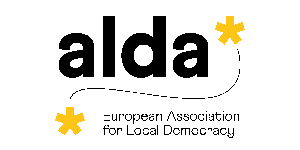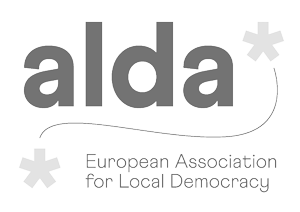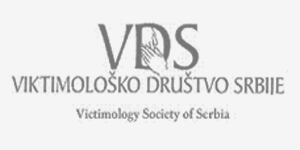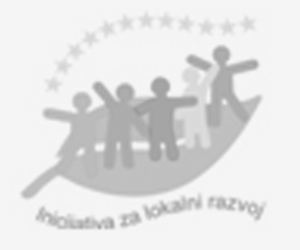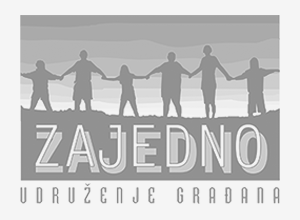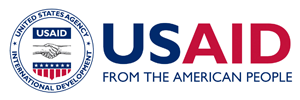EXIT FESTIVAL: How well do youth know their rights?
At the Exit festival, within the framework of the NGO Fair entitled "Place to MOVE!", part of the campaign "Say it louder!" we promoted the concept of Decent Work and informed the visitors on subjects relating to employment and labour rights.
At the Exit festival, within the framework of the NGO Fair entitled "Place to MOVE!", part of the campaign "Say it lounder!" we promoted the concept of Decent Work and informed the visitors on subjects relating to employment and labour rights.
Approximately 50% of youths are unemployed, they fall into the highest risk group in relation to undeclared employment, they are discriminated against during the job interview process on various grounds, they are victims of those who abuse volunteer work contracts and professional development and the level of how well-informed they are with regards to their rights in relation to work and employment is staggeringly low.
This campaign was implemented in 12 towns in the form of a "scratch/scratch" survey, containing "easy" questions in relation to the above mentioned field – overtime, mobbing, what constitute as an appropriate job interview question, protection for pregnant women, etc. In order to include as many youths as possible, every evening between 19.00 and 23.00 we were located at the Petrovaradin Fortress and were able to talk to young people about employment and working relations, and to get an idea of how knowledgeable they are in regards to this topic.
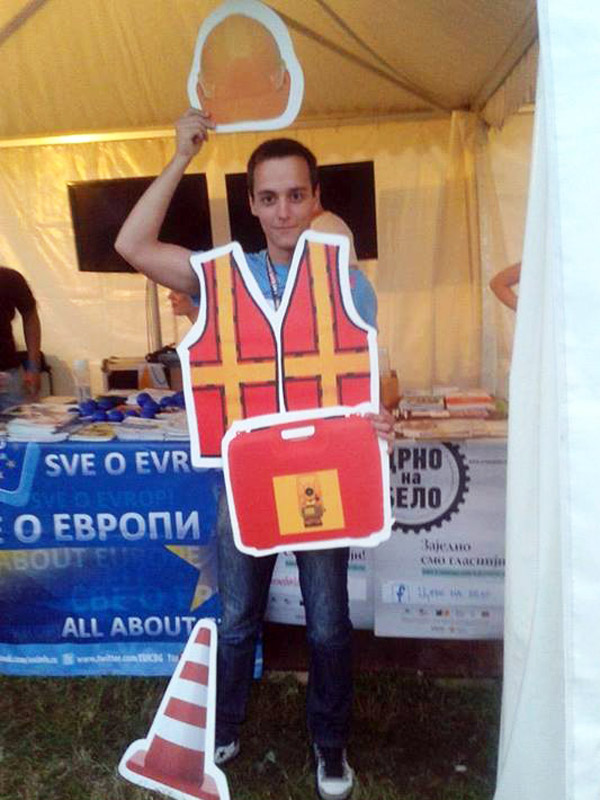
Questions about overtime and deadlines for registering employees were not easy for this group to answer; however, it is encouraging to know that they were able to recognise mobbing and that they are aware of the fact that they have the right to refuse to do a job if they are not provided with adequate protective equipment.
They were not convinced by facts stating that 30% of the working population is working under conditions of undeclared employment.
"In my neighbourhood, only a few people I know are registered employees" – said Dejan, from Novi Sad.
Anka, from Bulgaria told us about the situation in her country in regards to youth employment. Her biggest complaint was a lack of job security and low wages.
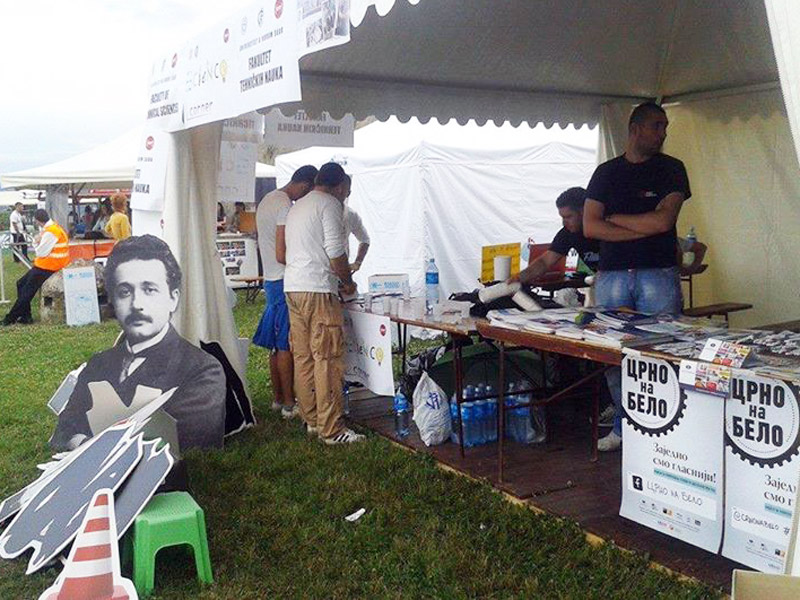
Andrija from Zrenjanin shared his opinion with us: "People are generally passive and are not prepared to fight for their rights, when in fact, the only people they can count on to improve their individual situations are themselves."
Nina wanted to answer all of our questions in order to see how well informed she was. She’ll be starting university this year, but she does work some of the time and would like to know what her rights are.
The NGO Fair is traditionally held during the festival at the Petrovaradin Fortress. And this year approximately 50 organisations had stands at the Fair from 10th to 14th July.
PUBLICATIONS
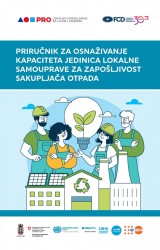 Manual for Strengthening the Capacities of Local Self-Government Units for the Employability of Waste Pickers
Manual for Strengthening the Capacities of Local Self-Government Units for the Employability of Waste Pickers
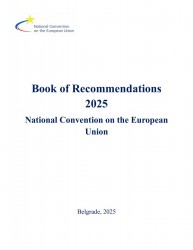 NCEU Book of Recommendations 2025
NCEU Book of Recommendations 2025
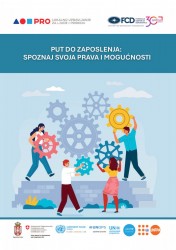 Manual “The Path to Employment: Get to Know Your Rights and Opportunities”
Manual “The Path to Employment: Get to Know Your Rights and Opportunities”
 Challenges for Organising and Collective Bargaining in Care, Administration and Waste collection sectors in Central Eastern European Countries
Challenges for Organising and Collective Bargaining in Care, Administration and Waste collection sectors in Central Eastern European Countries
 Public Policy Proposals – Collective Bargaining (CEECAW)
Public Policy Proposals – Collective Bargaining (CEECAW)
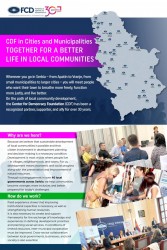 CDF in Cities and Municipalities: Together for a Better Life in Local Communities
CDF in Cities and Municipalities: Together for a Better Life in Local Communities
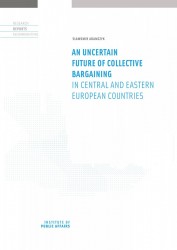 Comparative reports on collective bargaining - CEECAW
Comparative reports on collective bargaining - CEECAW
 POLITEIA – Regional School for Youth Participation 2025 (leaflet)
POLITEIA – Regional School for Youth Participation 2025 (leaflet)
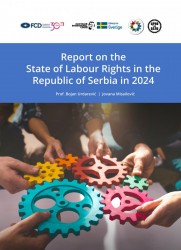 Report on the State of Labour Rights in the Republic of Serbia in 2024
Report on the State of Labour Rights in the Republic of Serbia in 2024
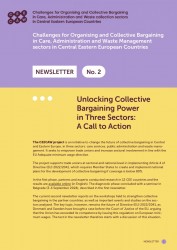 Unlocking Collective Bargaining Power in Three Sectors: A Call to Action
Unlocking Collective Bargaining Power in Three Sectors: A Call to Action
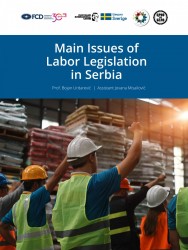 Main Issues of Labor Legislation in Serbia
Main Issues of Labor Legislation in Serbia
 New Monitoring Report by the “SDGs for All” Platform: Is the End Goal in Sight?
New Monitoring Report by the “SDGs for All” Platform: Is the End Goal in Sight?
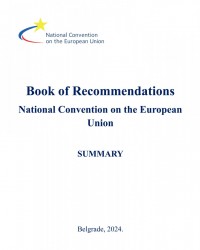 NCEU Book of Recommendations 2024 (Summary)
NCEU Book of Recommendations 2024 (Summary)
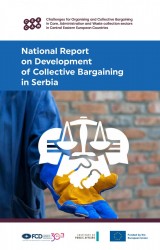 National reports on collective bargaining in Serbia - CEECAW
National reports on collective bargaining in Serbia - CEECAW
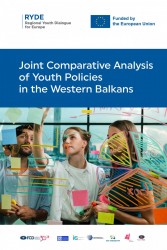 The Comparative Analysis of Youth Policies in the Western Balkans (WB)
The Comparative Analysis of Youth Policies in the Western Balkans (WB)
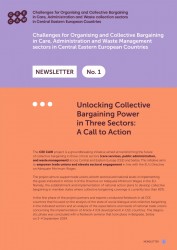 Unlocking Collective Bargaining Power in Three Sectors: A Call to Action
Unlocking Collective Bargaining Power in Three Sectors: A Call to Action
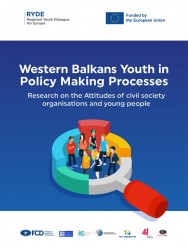 Western Balkans Youth in Policy Making Processes
Western Balkans Youth in Policy Making Processes
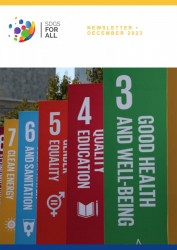 SDGs for All Platform newsletter (December 2023)
SDGs for All Platform newsletter (December 2023)





